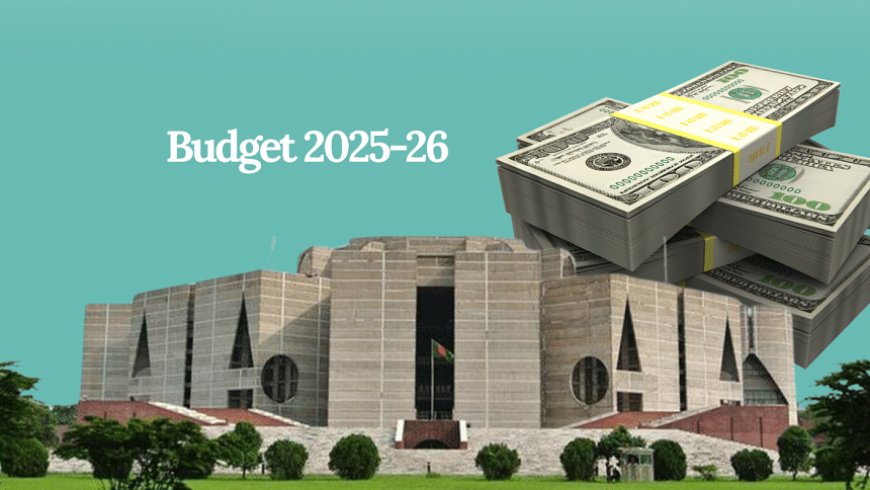Aid funding set for reduction in the upcoming budget
Plan Follows $42.85B in Unused Foreign Funds at Start of Current Fiscal Year

What's Your Reaction?







Join our subscribers list to get the latest news, updates and special offers directly in your inbox

The interim government has announced plans to reduce its foreign aid utilization target by 15%, setting it at Tk 85,000 crore for the upcoming fiscal year. This decision comes as a result of slow project execution in Bangladesh, which has left billions of dollars in development funding unspent. The government’s move reflects a need to adjust its target in light of the ongoing challenges in efficiently implementing development projects and utilizing foreign aid resources.
The proposed allocation under the Annual Development Programme (ADP) for the next fiscal year reflects a reduction from the Tk 100,000 crore target set for the current fiscal year, underscoring the persistent inefficiencies in aid-backed projects. At a meeting of the Fiscal Coordination Council on April 15, officials presented a draft budget with an overall ADP outlay of Tk 230,000 crore, including Tk 85,000 crore in foreign funds. A finance ministry official, speaking on condition of anonymity, explained that the reduced target reflects the spending capacity of various ministries and divisions. In the first nine months of the current fiscal year, ministries and divisions had spent only Tk 32,411 crore of the foreign funds, which amounts to about 32.5% of the target. In comparison, spending during the same period last year was higher at Tk 44,066 crore, or 46.8%, according to data from the Implementation Monitoring and Evaluation Division.
Officials from the planning and finance ministries have acknowledged that Bangladesh has historically struggled to effectively utilize foreign aid, with the situation becoming more challenging this fiscal year due to political changes following the mass uprising. At the start of the current fiscal year, unused foreign funds amounted to $42.85 billion. Even if the entire foreign aid allocation is fully utilized this year, only about 16% of the available pipeline would be tapped. Finance ministry officials noted that a 20% utilization rate of the aid pipeline is typically considered satisfactory.
From FY2010-11 to FY2020-21, foreign fund utilization in Bangladesh ranged between 11% and 13%. However, utilization improved over the next three fiscal years, reaching up to 19% by FY2023-24. According to a report from the Economic Relations Division (ERD), slow project implementation results in delayed aid disbursement, causing time and cost overruns. This, in turn, negatively affects the balance of payments and increases reliance on domestic borrowing.
The ERD report identified several factors contributing to project delays, including poorly planned or inadequately studied projects. It also pointed out that individuals involved in project preparation often lack proper training. In many cases, poor project design requires revisions of Development Project Proposals (DPPs) or Technical Project Proposals (TPPs) before work can begin. The lengthy approval process for these proposals also delays project initiation, with some projects not being adequately staffed with the right personnel. Other impediments such as frequent transfers of project officials, procurement-related bottlenecks, and challenges in land acquisition further complicate timely implementation.
Finance ministry officials cautioned that delays not only drive up project costs but also lead to higher commitment charges paid to lenders. A recent portfolio review report by the Asian Development Bank (ADB) highlighted that a commitment charge of 0.15% per year is applied to all undisbursed loan balances for ordinary capital resource loans, beginning 60 days after loan agreements are signed. As undisbursed balances are calculated daily, the timing of disbursements significantly affects total commitment charges. Bangladesh paid the ADB $3.58 million in commitment charges last year, according to the report submitted to the government in February.
The ADB report also identified several factors contributing to project deadline extensions and cost overruns, including underestimated civil works costs at the appraisal stage, changes in scope and design during implementation, delays in land acquisition and utility relocation, slow mobilization, inadequate contractor inputs, and the lingering impacts of Covid-19. To illustrate the consequences, the ADB cited three delayed projects, including the Greater Dhaka Sustainable Urban Transport Project, which was approved in April 2012 with an estimated cost of $255 million and an original completion deadline of December 2017. The project’s completion deadline was later pushed to December 2022, and additional financing was required to cover cost overruns. The total cost of the project increased by 94% to $494.39 million, and the ADB increased its loan by 63% to $260 million.
AK Enamul Haque, director general of the Bangladesh Institute of Development Studies, argued that project underutilization and delays are primarily caused by frequent changes of project directors, poor designs, and political interference. "Foreign funding often comes with many requirements that are difficult to meet, and the process is much easier when no donor is involved," he said. He further noted that, over the past two decades, many officials have preferred using government funds, which come with fewer restrictions. "Good governance, accountability, and transparency are crucial to improving the current challenging situation," he emphasized. "The first suggestion everyone makes is that we need good governance. It is very important to create an environment where laws are followed."







Suvradas Dec 29, 2025 0
